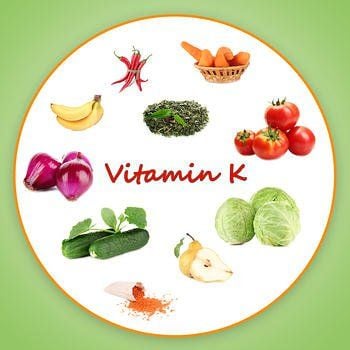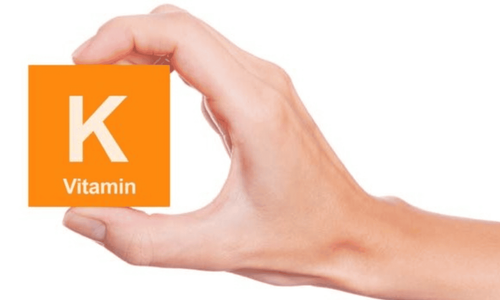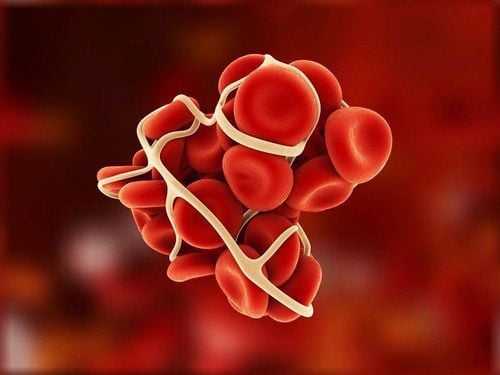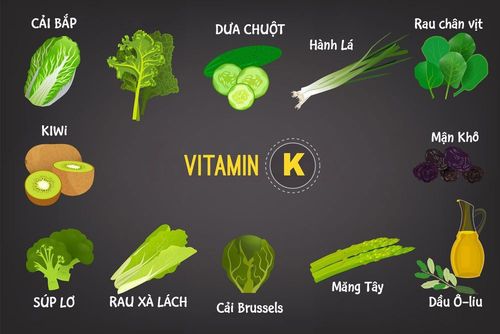This is an automatically translated article.
Like all other vitamins such as vitamins A, B, C, D or protein, carbohydrates... Vitamin K plays an extremely important role in the human body. So can vitamin K deficiency cause any disease?
1. The role of vitamin K with the body
Vitamin K participates in blood clotting in humans, by producing a specific protein to promote this process. Therefore, vitamin K is very necessary for humans, helping to prevent excessive blood loss when there is external damage or damage to internal organs.In addition, vitamin K along with calcium help form a strong skeleton for humans. Vitamin K is also involved in many other life processes and activities of the body. This nutrient comes in three forms, vitamins K1, K2, and K3. Vitamin K1 is usually found in green leafy vegetables like kale and spinach while vitamin K2 is available in the human intestinal tract.
Vitamin K deficiency often occurs in busy people, often eating junk food or processed foods lacking green vegetables.
2. What disease does vitamin K deficiency cause?
When adults have vitamin K deficiency, they will experience the following diseases:
Heart disease
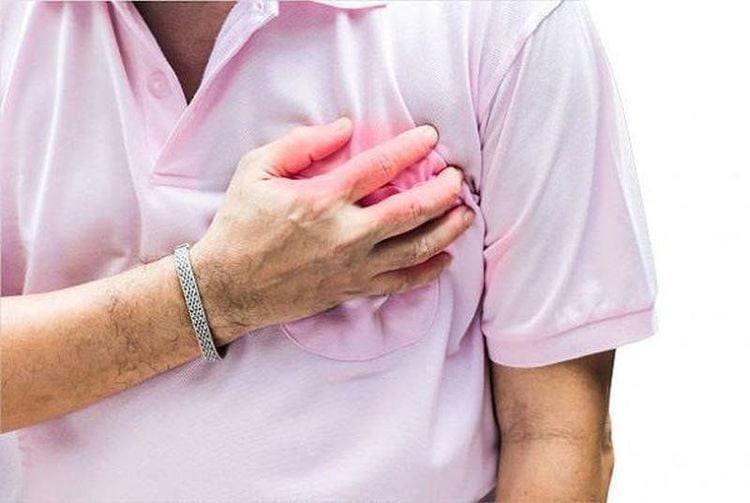
Thiếu Vitamin K2 dễ dẫn tới bệnh tim
Vitamin K2 is directly related to the calcification of the arteries, so vitamin K2 deficiency leads to the risk of cardiovascular diseases. About 57% of patients who died from cardiac arrest were caused by vitamin K2 deficiency. Therefore, it is necessary to increase vitamin K2 for the body to fight and prevent cardiovascular diseases.
Cancer Vitamin K can help the body fight cancer, if vitamin K deficiency in the body can lead to the risk of cancers such as: breast cancer, lung cancer, prostate cancer ...
A study A study with male patients aged 35-64 years showed a higher risk of prostate cancer in vitamin K deficient men than in others.
Osteoporosis Vitamin K not only helps blood clot but also adds calcification and metabolism in bones. When vitamin K deficiency is easy to lead to osteoporosis, especially in people over 40 years old when bones are no longer strong and begin to degenerate.
Bleeding a lot Vitamin K helps prevent bleeding both inside and outside the body. Therefore, vitamin K deficiency can lead to excessive bleeding even with minor injuries.
Easily bruised Without vitamin K, the body is more prone to bruises and excessive bleeding. Research shows that in people who eat a lot of broccoli, lettuce ... or foods high in vitamin K, there are less bruises on the body.
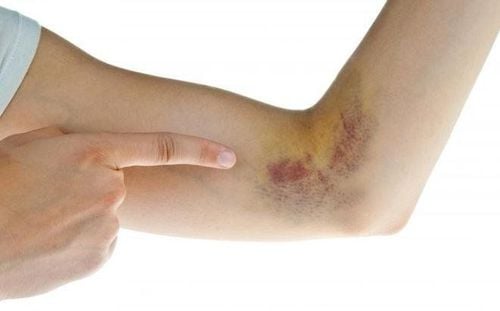
Thiếu vitamin K dễ gây các vết bầm tím
Fast aging Vitamin K is not a factor that causes wrinkles, but a deficiency of vitamin K leads to weak bone diseases, cardiovascular disease ... making you old before your age. As such, vitamin K deficiency prevents you from leading a flexible and healthy life.
Especially, if the newborn is deficient in vitamin K, the more serious consequences are bone, nose, face, finger, neural tube defects, affecting learning, receptivity and thinking ability. .. Therefore, children need to be regularly checked and ensure adequate vitamin K absorption.
3. How much vitamin K is enough?
The need for vitamin K is different for each subject, age, and gender. Specifically, every day adult men need to supplement 80mcg of vitamin K, and women need 65mcg.For children:
From 0 to 6 months old need to supplement 2.0 mcg per day. From 7 to 12 months old need 2.5 mcg per day. From 1 to 3 years old need 30mcg of vitamin K per day. From 4 to 8 years old need 55mcg per day. 9 to 13 years old: 60mcg per day. Babies are especially vulnerable to vitamin K deficiency as well as other nutrients because the only source of nutrition is breast milk.

Phụ nữ mang thai cần bổ sung nhiều hơn vitamin K
For pregnant women and nursing mothers, it is necessary to use a lot of vitamin K but should not exceed 65 mcg / day. People who have just had a stroke or have poor blood clotting, easy to clot, use vitamin K supplements only with the advice of a doctor.
4. Vitamin K supplements from which foods?
Nutritionists recommend that we only supplement with vitamin K1 (of plant origin) or K2 (of bacterial origin). Do not supplement vitamin K3 because when used easily generate free radicals.The safest way to supplement vitamin K is through daily food.
Vitamin K1 is abundant in dark green vegetables such as spinach, cauliflower, salad, cabbage. Cruciferous vegetables are a great source of vitamin K. According to calculations, 100g of cooked kale gives you 817 micrograms of vitamin K. In addition, spinach, turnip greens, beets, collard greens also contain a large amount of this nutrient.
Parsley is also a top source of this important vitamin. Just 10 sprigs of parsley provide you with 164 micrograms of vitamin K. Additionally, you can find vitamin K in mint leaves, basil, and garlic. Many other delicious and nutritious fruits also contain a fairly large amount of vitamin K such as: plums, kiwis, avocados, tomatoes...
And vitamin K2 is found in fermented cheese and fermented bean products. soy sauce.
Currently, Vinmec International General Hospital is providing a General Health Checkup package. In the health check package, customers will receive a comprehensive examination, from eyes, teeth, blood pressure, weight to necessary tests, combined with diagnostic imaging. The examination package helps you check your overall health, screen symptoms to detect and advise on a suitable diet for each customer's health condition.
Please dial HOTLINE for more information or register for an appointment HERE. Download MyVinmec app to make appointments faster and to manage your bookings easily.




